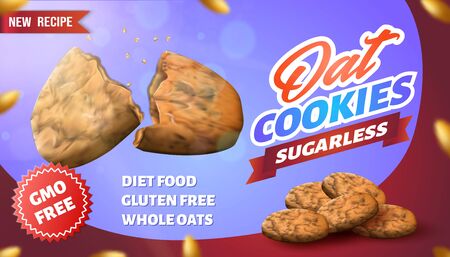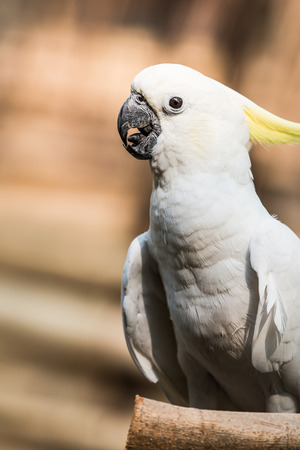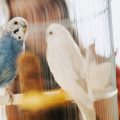Introduction: Understanding Cockatoo Dietary Needs
Cockatoos, with their charming crests and endearing personalities, have fluttered their way into the hearts of many American households. These playful parrots are more than just beautiful birds—they’re intelligent, social companions who thrive on interaction and affection. Anyone who has spent time with a cockatoo knows that their antics and loving nature can light up any room, whether they’re strutting across the kitchen floor or snuggling in for storytime on the porch swing. But behind those bright eyes and fluffy feathers lies a simple truth: to enjoy years of joy and mischief together, it’s essential to understand and provide the very best nutrition possible. Just like our beloved dogs and cats, cockatoos rely on us to make smart choices about what fills their food bowls. The right diet isn’t only about keeping them full—it’s about supporting their health, boosting their energy for playtime, and helping them live long, vibrant lives by our side. In this guide, we’ll dig into what makes an optimal cockatoo diet, ensuring your feathered friend gets everything they need to flourish as a treasured member of your family.
Key Nutritional Components for Cockatoos
If you want your cockatoo to thrive and fill your home with cheerful whistles, understanding the key nutritional components of their diet is absolutely essential. Much like us, cockatoos need a balanced mix of proteins, healthy fats, vitamins, and minerals to stay vibrant and energetic. Let’s break down these foundational nutrients:
Proteins: Building Blocks for Health
Proteins help your cockatoo maintain strong muscles, healthy feathers, and an active immune system. Sources include high-quality pellets, legumes, cooked eggs (offered occasionally), and small amounts of lean cooked meats. Be careful not to overdo it—balance is key!
Healthy Fats: Essential for Energy and Shine
Cockatoos require some fat in their diets to provide energy and support feather health. Seeds do contain fats, but they should be given in moderation due to their high calorie content. Instead, look for sources like walnuts or flaxseed as occasional treats.
Vitamins & Minerals: The Unsung Heroes
These nutrients are vital for everything from bone strength to a strong immune system. Leafy greens like kale and spinach, brightly colored veggies like carrots and sweet potatoes, and fruits such as papaya or berries are all fantastic choices. Don’t forget calcium—a must-have for cockatoos—and make sure fresh water is always available.
Quick Reference Table: Key Nutrients for Cockatoos
| Nutrient | Main Sources | Benefits |
|---|---|---|
| Protein | Pellets, legumes, cooked egg | Muscle & feather development |
| Healthy Fats | Nuts (walnuts), seeds (flaxseed) | Energy & feather condition |
| Vitamins A & C | Kale, carrots, berries | Immune support & vision |
| Calcium | Broccoli, cuttlebone, fortified pellets | Bone health & egg-laying support |
| Fiber | Leafy greens, whole grains | Digestive health |
A Note on Variety and Moderation
No single food can supply all the nutrients your cockatoo needs. Rotate ingredients regularly to keep meals interesting and ensure a full spectrum of nutrition. Think of it as building a colorful garden plate—variety keeps things fun and healthy for your feathery friend!

3. Best Foods for a Balanced Cockatoo Diet
If you want your cockatoo to thrive and show off that playful, affectionate personality, it all starts with what’s in the food bowl. Let’s explore the vet-recommended staples that should form the foundation of every cockatoo’s diet—these will keep those beautiful feathers shining and energy levels high.
Fresh Vegetables: The Heart of Every Meal
Veterinarians agree: fresh veggies are a must! Leafy greens like kale, collard greens, and Swiss chard provide essential vitamins and minerals. Add in chopped carrots, bell peppers, broccoli florets, and sweet potatoes for color and crunch. Always wash produce thoroughly, chop it into safe, bite-sized pieces, and rotate different veggies to keep meals interesting and seasonal.
Fruits: Sweet Treats in Moderation
Cockatoos love fruit, but moderation is key because of natural sugars. Offer apple slices (no seeds!), berries, melon cubes, and banana rounds as occasional treats. Seasonal fruits like blueberries or peaches can be a fun way to celebrate summer harvests right from your backyard or local farmer’s market.
High-Quality Pellets: Nutrition You Can Trust
About 60-70% of your cockatoo’s diet should be made up of formulated pellets designed specifically for parrots. These provide a balanced blend of proteins, vitamins, and minerals without excess fat or fillers. Look for reputable brands recommended by avian vets—your feathered friend deserves the best!
Safe, Wholesome Treats: For Training and Bonding
Treats make training sessions fun and help strengthen your bond. Try unsalted almonds, small pieces of whole grain toast, or homemade bird-safe muffins in tiny amounts. Avoid chocolate, avocado, caffeine, or anything salty or sugary—these are toxic to parrots.
Incorporating Variety with Seasonal Produce
Just like us humans love a change in our menu when the seasons shift, so do our cockatoos! Rotate new vegetables and fruits as they become available at your local grocery store or farmers’ market. This not only keeps meals exciting but also ensures your bird gets a wider range of nutrients year-round.
A Little Preparation Goes a Long Way
Prepping fresh foods ahead of time makes healthy feeding easy on busy mornings down on the homestead. Chop veggies in bulk, freeze extra portions in bird-safe containers, and remember—sharing your garden bounty is one of the sweetest joys of pet parenthood!
4. Foods to Avoid: Keeping Your Cockatoo Safe
While cockatoos love to explore and taste new things, their curiosity can sometimes get them into trouble—especially in a busy American kitchen. Some foods that are perfectly safe for us or even our dogs and cats can be downright dangerous for our feathered friends. Knowing what foods to keep out of reach is just as important as knowing what to feed your cockatoo for a healthy, long life.
Common Foods That Are Toxic or Harmful
| Food Item | Why It’s Dangerous |
|---|---|
| Avocado | Contains persin, which is toxic to birds and can cause heart failure. |
| Chocolate | Theobromine and caffeine can cause seizures and death. |
| Caffeine (coffee, tea, soda) | Leads to cardiac distress, hyperactivity, and possible fatality. |
| Alcohol | Even tiny amounts depress the organ systems and can be lethal. |
| Onion & Garlic | Can cause digestive irritation and red blood cell damage. |
| Salt & Salty Snacks | Too much salt leads to kidney failure and dehydration in birds. |
| Dairy Products | Cockatoos can’t digest lactose; causes digestive upset. |
| Xylitol (sugar substitute) | This sweetener is highly toxic and can cause rapid liver failure. |
| Fruit Pits & Apple Seeds | Contain cyanide compounds which are poisonous when chewed. |
| Moldy or Spoiled Foods | Molds release toxins that affect the liver and nervous system. |
Tips to Keep Curious Beaks Out of Trouble
- Lock Up Snacks: Store human treats like chocolate, chips, and nuts out of reach. A closed pantry or high cabinet works wonders!
- No Table Scraps: Avoid the temptation to share from your plate—even a little bit of onion or salty food can be harmful.
- Supervise Kitchen Time: If your cockatoo joins you during meal prep (mine loves the action!), keep a close eye on where they’re flying and pecking.
- Tidy Up Promptly: Clean up spilled food or drinks right away. Curious cockatoos are quick to investigate anything dropped on the floor.
- Educate Family & Friends: Make sure everyone in your household—including children—knows what’s unsafe for your pet bird. Print out a “no-go” list for easy reference!
If Your Cockatoo Eats Something Unsafe…
If you suspect your cockatoo has eaten something toxic, call your avian vet or an animal poison control hotline immediately. Fast action can save lives! Keeping these foods off the menu will help ensure your cockatoo enjoys many more years of happy chatter, cuddles, and countryside adventures with you.
5. Meal Planning and Feeding Tips
If you want your cockatoo to thrive, thoughtful meal planning is a must. Cockatoos are clever birds with strong instincts to forage and explore, so their feeding routines should go beyond simply filling a food bowl. Here’s how you can develop a healthy schedule, keep portions in check, and tap into their natural behaviors for happier, healthier birds.
Establishing a Consistent Feeding Schedule
Cockatoos benefit from having set mealtimes each day—just like us. Aim for two main meals: one in the morning and one in the evening. This routine helps prevent boredom grazing and lets you monitor what your bird eats more closely. If you’re out during the day or have a busy homestead, prepping meals ahead of time or using automatic feeders can keep things consistent.
Portion Control: Quality Over Quantity
It’s tempting to fill up your cockatoo’s dish, especially when they beg with those adorable eyes! But overfeeding leads to obesity and health problems down the road. A good rule of thumb is to serve about 1/4 cup of high-quality pellets daily, along with fresh veggies and fruits in moderation. Always remove uneaten fresh foods after a few hours to keep things fresh and safe.
Encouraging Natural Foraging Behaviors
Wild cockatoos spend hours searching for food, which keeps their minds active and bodies fit. Bring that experience home by hiding treats in foraging toys, wrapping bits of food in paper cups, or scattering seeds among clean branches and leaves in their play area. Not only does this slow down eating (helpful for digestion!), but it also busts boredom and prevents destructive habits.
Mix It Up With Seasonal Variety
Keep your feathered friend interested by rotating different types of produce based on what’s fresh at your local farmer’s market or grocery store. Think leafy greens in spring, pumpkin in fall, or berries in summer—just be sure any new foods are safe for parrots before offering them.
Family Time at Mealtime
Cockatoos are social creatures who love sharing experiences—including mealtimes! If you’re enjoying some bird-safe snacks yourself, invite your cockatoo to join in (at their own tableware, of course). This not only strengthens your bond but also encourages them to try new healthy foods alongside you.
By combining consistency with creativity, you’ll keep your cockatoo nourished both physically and mentally—right at home on the homestead!
6. Signs of a Healthy (or Unhealthy) Diet
If you want your cockatoo to live its happiest, healthiest life—flapping around your sunroom or chattering from its favorite perch—you’ll want to learn how to spot the telltale signs of good nutrition (and those red flags that something’s off). Just like us folks out here in the countryside checking our veggie gardens for healthy leaves, it pays to keep an observant eye on your feathery companion.
Healthy Signs in Your Cockatoo
Feather Quality: A well-fed cockatoo will sport glossy, vibrant feathers that lie smooth against their body. No bald patches or constant molting beyond normal cycles.
Bright Eyes and Active Behavior: Healthy birds are alert, curious, and social. They’ll whistle, play with toys, and interact with you and their environment.
Steady Appetite: Consistent interest in food is a great sign. Your bird should eagerly approach mealtimes and sample a variety of foods from its dish.
Normal Droppings: While this might not be the most glamorous part of pet care, monitoring droppings is essential. Healthy droppings are firm but not hard, with a white urate portion and greenish-brown fecal matter. No strong odors or dramatic color changes.
Red Flags: When Diet Isn’t Quite Right
Dull or Fluffed Feathers: Feathers that look ragged, dull, or are constantly fluffed up could signal malnutrition or illness.
Lethargy or Sudden Changes in Behavior: If your usually chatty cockatoo becomes withdrawn, sleeps more than usual, or loses interest in favorite activities, something might be amiss nutritionally.
Picky Eating or Sudden Appetite Loss: A drop in appetite—or refusal to eat certain foods—can indicate discomfort or nutritional imbalance.
Abnormal Droppings: Watch for watery, discolored (especially red or black), foul-smelling, or excessively runny droppings. These can all be signs of dietary trouble.
The Role of Routine Observation
Just like noticing when your dog’s coat is shinier after a new food brand—or when your barn cat suddenly seems listless—catching changes early can make all the difference. If you notice any persistent negative signs, don’t hesitate to call your avian vet. With the right diet and keen observation, your cockatoo can thrive as a joyful member of your bustling home flock.
7. Conclusion: Nourishing Your Feathered Friend for a Fulfilling Life
As you embrace the rhythms of country living and the simple joys of homestead life, remember that sharing your days with a cockatoo is about more than just feeding—it’s about nourishing a bond that grows stronger with every meal, every laugh, and every gentle moment spent together. By choosing a balanced, fresh diet filled with wholesome grains, vibrant fruits and veggies, and a sprinkle of seeds and nuts, you’re not only supporting your cockatoo’s health but also honoring their spirited nature. Don’t forget the importance of variety; just like us on the farm, cockatoos thrive when their meals are colorful and diverse. Preparing healthy treats or foraging toys as part of your daily routine can be as rewarding for you as it is enriching for your feathered companion. So here’s to many more mornings sipping coffee on the porch while your cockatoo sings along with the sunrise, to afternoons filled with laughter as they investigate garden-fresh produce, and to evenings winding down together after a day well-lived. Nourishing your cockatoo isn’t just about food—it’s about sharing a full, joyful life under one roof. Keep learning, keep loving, and let every meal be another way to say “welcome home” to your cherished friend.


